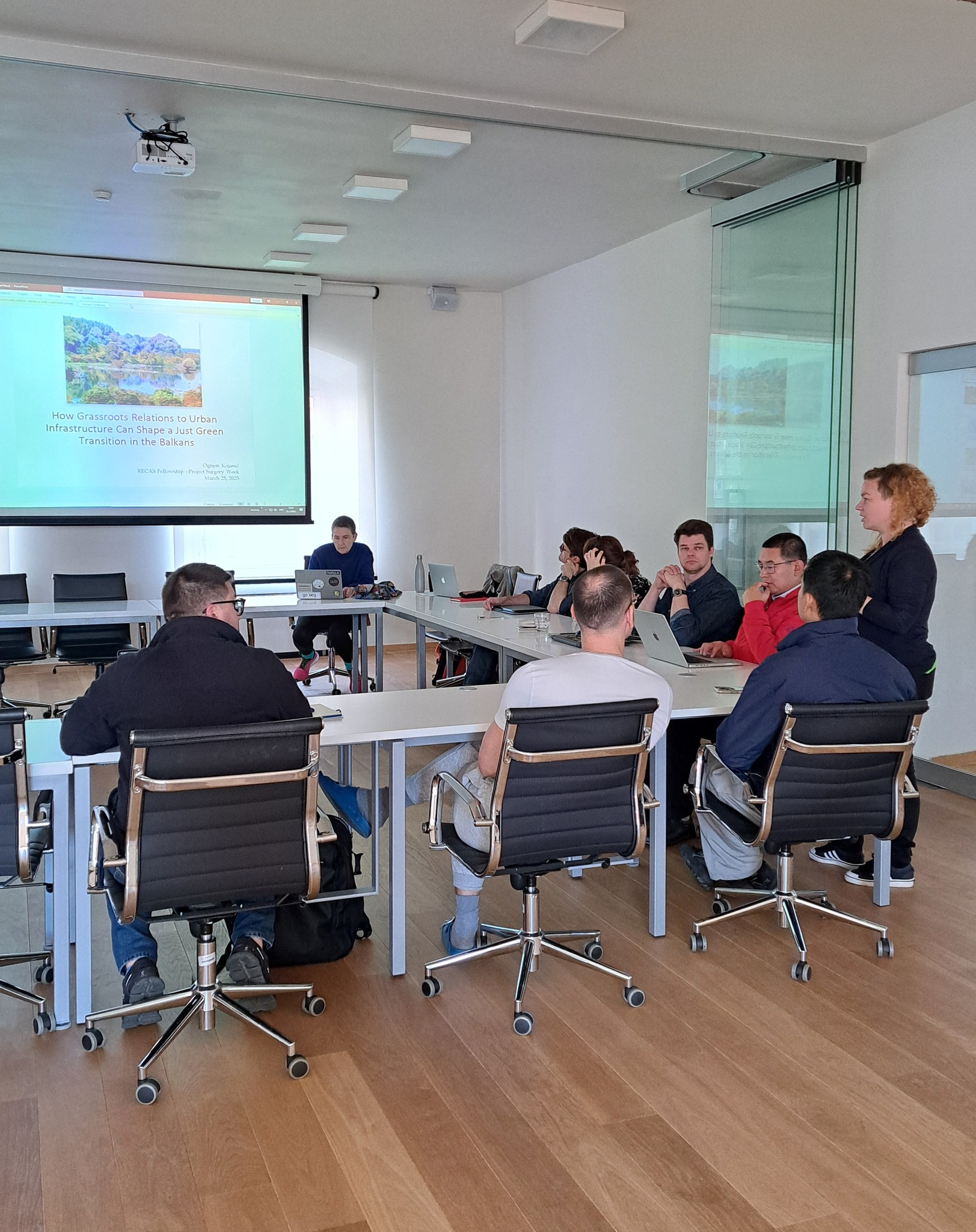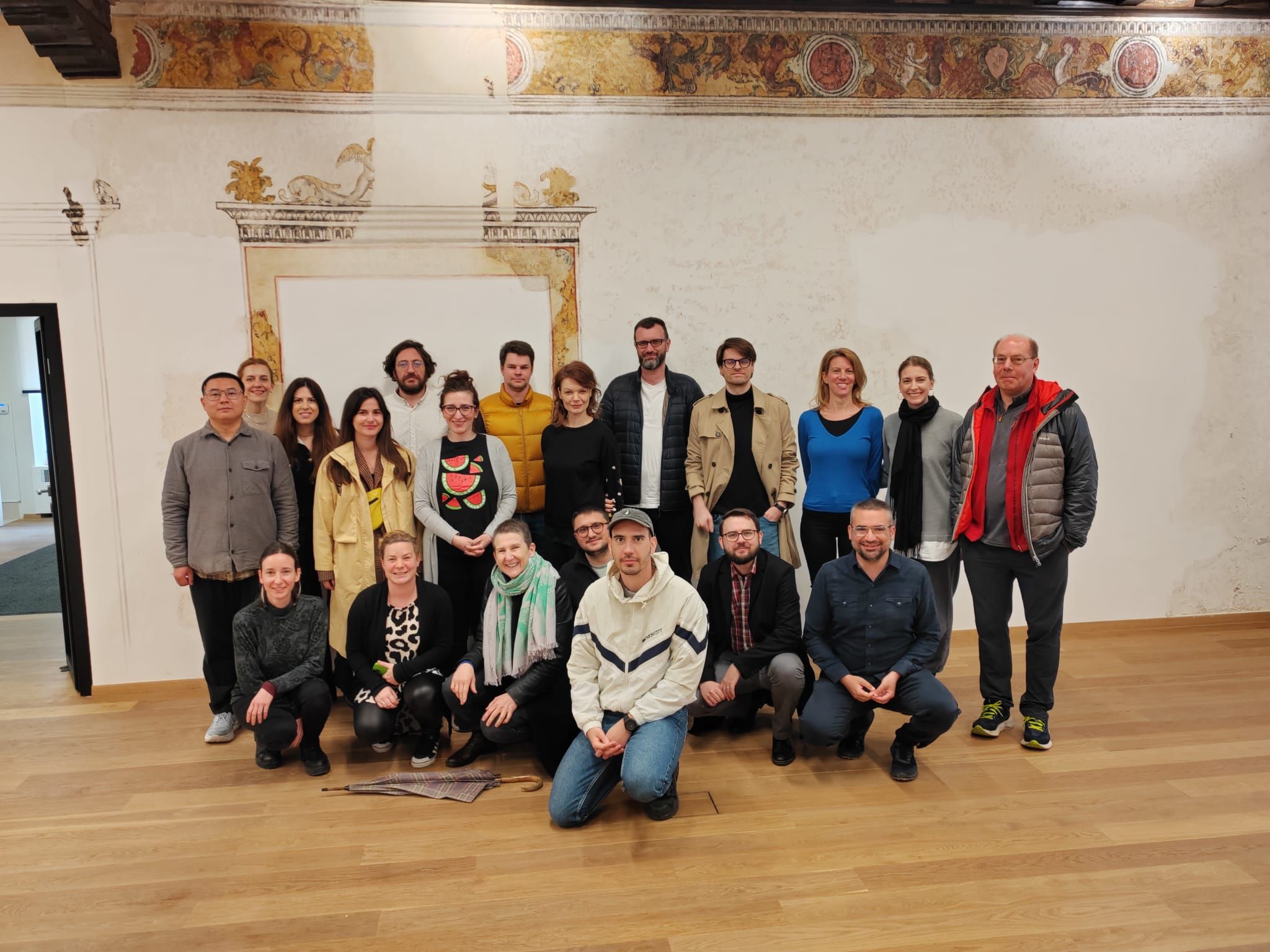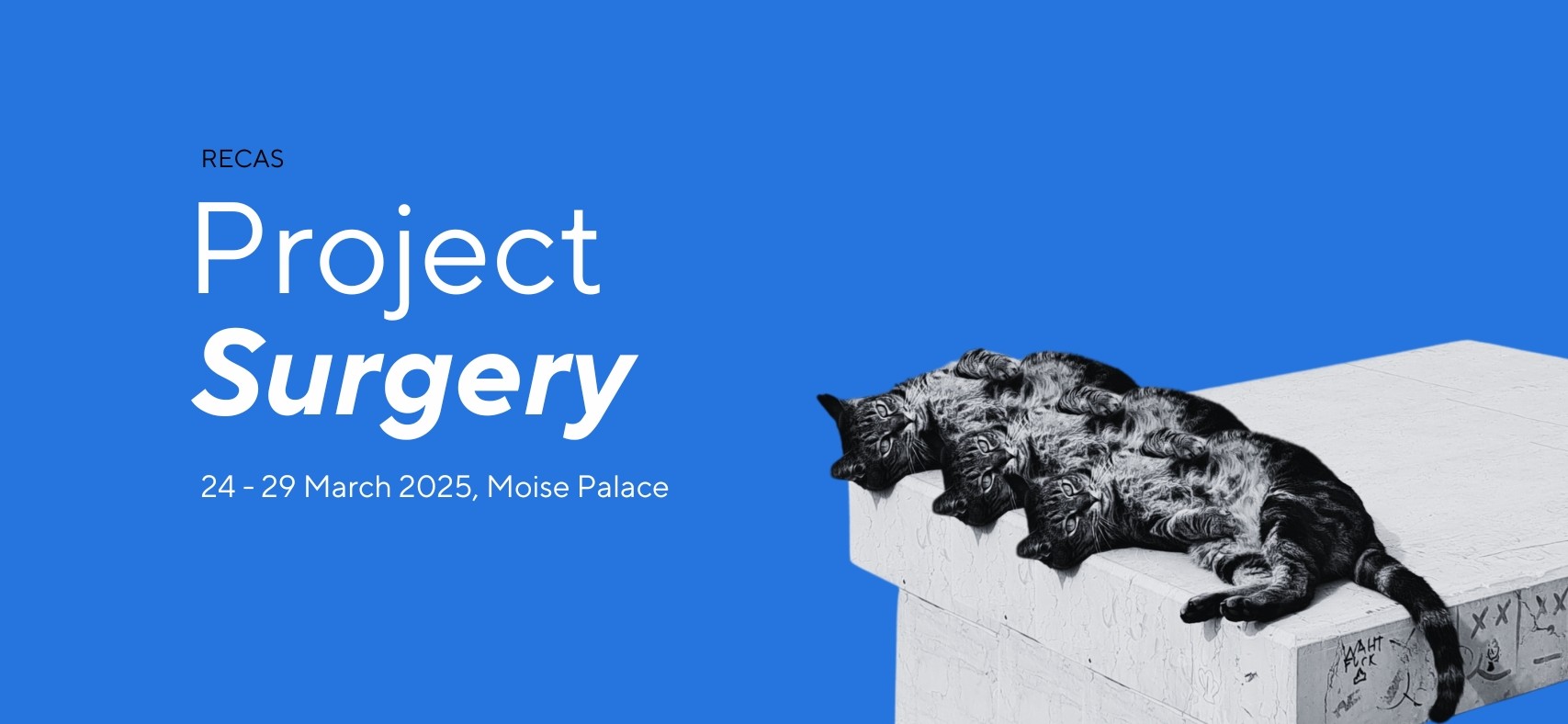RECAS Fellowship 2024/2025: Project Surgery week at Moise Palace
Each generation of RECAS Fellows participates in a one-week residency at Moise Palace in Cres. The core activity during this stay is the “Project Surgeries” program, which consists of collective discussions on each Fellow’s paper or project. This year’s Project Surgery Week took place from March 24th to 29th, fostering a collaborative approach that encourages the exchange of ideas and diverse perspectives, reflecting the multidisciplinary backgrounds of the Fellows.
The residency began with Ognjen Kojanić presenting “How Grassroots Relations to Urban Infrastructure Can Shape a Just Green Transition in the Balkans.” His research explores how grassroots perspectives can inform policymakers working on urban water and waste management, green infrastructure, and forestry services. Aida Kapetanović introduced “Let’s Defend the Balkan Rivers,” a project focused on regional networking and policy strategies for river protection in Southeast Europe. Meanwhile, Arseniy Kumankov tackled pressing questions about modern citizenship and political responsibility in his project, “Citizenship in the 21st Century: Rights and Duties.” The day concluded with Emina Bužinkić presenting “Migrant Work(ers) Counter Economies,” examining the intersection of migration, labor rights, and economic precarity in the EU.
Second day Ljubiša Bojić presented his project “Aligning AI for Democratic Resilience: Addressing Digital Challenges in the Balkans through Ethical AI Implementation,” with the primary objective of developing strategic interventions and policy recommendations that align AI technologies with democratic principles, fostering digital inclusion, and strengthening democratic resilience in the region. Haisheng Hu, presented his project “The Belt and Road in the Western Balkans: An Opportunity for Prosperity or an Economic Trap?” aims to assess the impact of the Belt and Road Initiative in terms of infrastructure investment, economic cooperation, and policy coordination for the Western Balkans, focusing on economic stability, digital transformation, and environmental sustainability. Safet Kubat, with his “Balkan Doughnut – Exploring Pathways to Green Transformation” project, aims to propose a replicable Balkan Doughnut Model as a tool for public policy, enhance cross-border cooperation, and generate a unifying narrative for the region.

A highlight of the day was the launch of the Regional Academic Policy Lab, reinforcing RECAS’ commitment to bridging academic research and policy-making.
The third day started with Olimpija Hristova Zaevska’s project on “Impact of Industry 4.0 ecosystems on regional innovation across WB6,” which aims to provide recommendations for enhancing regional innovation and green transitions in WB countries by utilizing I4ESes. Jasna Jovićević, continued with her presentation “Hyper-Identities in Jazz: Mapping the Migration of Female Musicians Through Their Sonic Narratives,”. that is bridging artistic and academic inquiry to work toward gender equity, circular migration policy, and cultural sustainability in Southeast Europe. Slađana Kavarić Mandić presented “Transforming Regional Ecological Thought: Artistic Practices at the Museums of Contemporary Art in Rijeka, Podgorica, and Belgrade” and explained her attempt to evaluate and re-examine recent artistic actions within the field of ecological art, highlighting their undeniable potential for fostering broader societal emancipation and addressing the issues of unequal development in the Western Balkans. Gentjan Skara ended today’s presentations with “Competition law enforcement in Western Balkan Countries: Challenges from online giants” and stated that the WBc national competition authorities lack the necessary human, financial, and technical resources to handle these kinds of cases.
The final day of Project Surgeries started with the outcomes of “Countering Economic Injustice Through Democratisation of Ownership,” a project by Miloš Kovačević, that offered both a philosophical and policy-based roadmap to promote workplace democracy and address regional economic disparities. Key deliverables include a scientific paper and a policy analysis report targeting SEE policymakers. Peter Langford, continued with “Assisting and Reinforcing Environmental Justice in Environmental Movements, Organisations, and Political Parties in the Balkans,” aimed to develop a theory of environmental justice that expresses and reinforces the presence of this notion in the approaches of environmental civil society organisations, grassroots movements, and Green or environmental political parties in the Balkans. Milo Ivančević, presented his work “AI Adoption by Central Banks in the Western Balkans to Enhance Financial Stability,” and demonstrated that, in the context of the Western Balkans’ growing IT ecosystem and skilled workforce, there is a critical need to understand how AI could be harnessed to improve financial oversight and security. Finaly, Eleni Oikonomaki presented “Identifying Innovation Indicators at the Local (Neighborhood) Level,” evaluating the dynamics of innovation districts using big data and geospatial analytics to detect innovation patterns and develop a framework for innovation assessment.
Beyond research presentations, Project Surgeries at Moise Palace foster networking, informal discussions, and team-building activities. These moments are integral to RECAS’ mission—encouraging scholars and practitioners to collaboratively envision transformative social and economic changes.
In a region marked by demographic shifts, geopolitical tensions, environmental crises, and democratic erosion, RECAS promotes integrated, forward-thinking solutions. Protecting social rights and strengthening grassroots movements, civil society organizations, and academic networks is essential for fostering democratic resilience.
Through the Regional Network of Centers for Advanced Studies (RECAS), the Fellowship fosters in-depth analysis of policy frameworks and action plans that shape civil society and political activism. By capturing transformative moments, RECAS empowers actors to drive meaningful change—building a more democratic and sustainable future for Southeast Europe and beyond.


